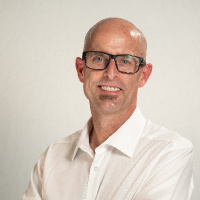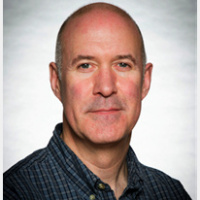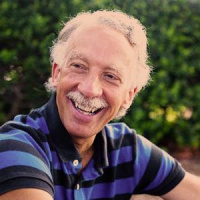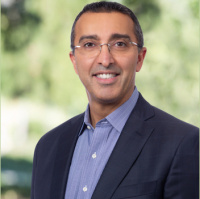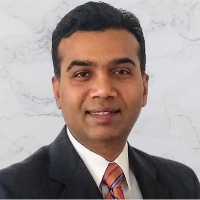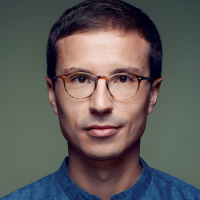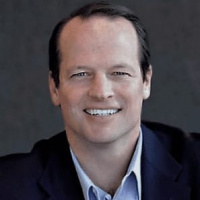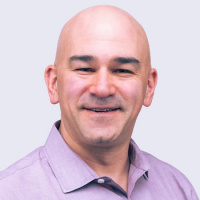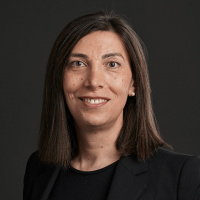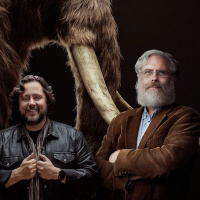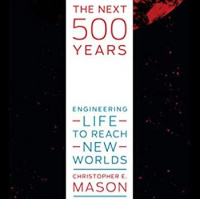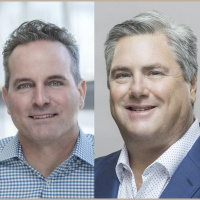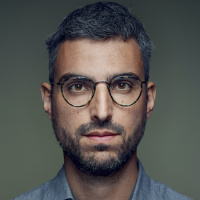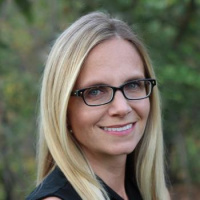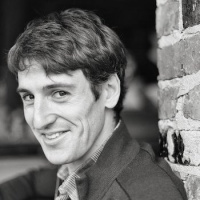Synopsis
Mendelspod was founded in 2011 by Theral Timpson and Ayanna Monteverdi to advance life science research, connecting people and ideas. Influenced by the thinking tools developed by Eli Goldgratt, the founders bring a unique approach to media in the life sciences. With help from our advisors around the industry, Mendelspod goes beyond quick sound bites to create a space for probing conversations and deep insight into the topics and trends which shape the industry's future and therefore our future as a species.
Episodes
-
The Promise of Exosomes Now Realized, Says Paul Billings, CEO, Biological Dynamics
02/06/2022The area of early cancer detection continues to become ever more exciting these days. Each month more companies add liquid biopsies to their product offering as new technologies advance and are able to recognize cancer with increased sensitivity and specificity, particularly from cell-free DNA in the blood.
-
5-Base Sequencing: Jonas Korlach and Tomi Pastinen
25/05/2022Pacific Biosciences has introduced a new method for detecting DNA methylation simultaneously with DNA sequencing. They are calling it 5-base sequencing. Today on the program, Jonas Korlach, PacBio’s Chief Scientific Officer, and Tomi Pastinen, the Director of the Genomic Medicine Center at Children’s Mercy Research Institute in Kansas City join us to describe the new breakthrough and connect it to clinical possibilities.
-
More Cancer Patients Die from Infections than Cancer, Says Alec Ford, CEO of Karius
18/05/2022Alec Ford is passionate about his message. No wonder. There's an astounding fact in cancer medicine that is little known and could make a big difference. More cancer patients are dying from infections than they are from their cancers. And Alec's company has the technology to do something about it.
-
Some of the Lowest Hanging Fruits in Precision Medicine: Michelle Whirl-Carrillo on Pharmacogenomics
10/05/2022One of the underrated but true successes of precision medicine has been pharmacogenomics. Beginning in the ’90s with the approval of the drug Herceptin for HER2 positive breast cancer, tailoring drugs to genotype has been one of the less controversial areas of our field and will only continue to build on the early promise of sequencing the human genome. Today we talk Michelle Whirl-Carrillo, Director of PharmGKB, a one-stop go-to for pharmacogenomics data that has been funded by the NIH since 2000.
-
John Nelson of GE Research Talks Vaccines on Demand, Enzymatic Synthesis, and the Era of Writing DNA
14/04/2022Today we talk with John Nelson, Senior Principal Scientist at GE Research and veteran in the field of DNA synthesis. On January 7th, 2020, two weeks before the first cases of the coronavirus were reported in the U.S, John and a team of scientists and engineers proposed a new project to DARPA called NOW, or Nucelic Acids on Demand Worldwide. The goal of the project, now fully underway, is to deliver DNA-based vaccines anywhere in the world in three days.
-
A New Generation Comfortable Doing a Thousand Things at a Time Is Reinventing Life Science Says Joe Beechem of NanoString
07/04/2022“I’ve seen a lot of revolutions. Now we’re at the beginning of spatial biology, and I think it has the chance to transform life science similar to next gen sequencing, but even more. It’s going to have more ramifications that spread through more disciplines than any of the revolutions I’ve seen in a while.”
-
Enabling a New Age of Unbiased Proteomics Discovery: Omid Farokhzad, Seer Inc.
31/03/2022Are we now entering the age of proteomics the way we did with genomics thirty years ago? We were told we should talk to today’s guest by four people in one week. He’s Omid Farokhzad, CEO and Founder of Seer Inc. When we did, we understood why. Seer offers its customers the chance to “see the proteome in a way that’s never been possible before.” So what does that mean?
-
The Rise of MRD Testing and the Field of Fragmentomics with Sugganth Daniel, Invitae
17/03/2022"There's an entire field of fragmentomics with a whole lot of people working on it. The DNA which is shed into the bloodstream has a certain length. The length of ctDNA is shorter than cfDNA, and depending on where the cancer cell is located, the fragment size and pattern is different. So you can actually deduce information about the tissue of origin from the fragment length and pattern. And that's just the beginning."
-
The Invention of Enzymatic DNA Synthesis with Sylvain Gariel, DNA Script
03/03/2022The DNA synthesis space is seeing some real creativity and disruption this past year. One newcomer, in particular, is shaking things up. Sylvain Gariel is the co-founder and chief operating officer of DNA Script, who has recently launched the world’s first benchtop enzymatic DNA synthesizer. In today's show, Sylvain, co-inventor of the new system, tells how he met his co-inventors at a French gas company and came to invent a whole new way of writing DNA.
-
Akoya Biosciences Launches New Integrated Spatial Platform: Our First Interview with CEO Brian McKelligon
24/02/2022Even though Brian McKelligon calls himself a rookie CEO, he comes to the top position at Akoya Biosciences with a veteran’s resume. His path to one of spatial biology’s hottest companies in 2022 worked him up the ranks of some of the top names in life science tools: Affymetrix, Ingenuity, Ion Torrent, and 10X Genomics. Last year Brian led Akoya through an IPO and this year the company has launched a new integrated product line called the Phenocycler-Fusion which they are calling the fastest single-cell spatial biology system on the market.
-
Harlan Robins on How T-cell Focused COVID Vaccines Can Move Us Toward Endemicity
16/02/2022Harlan Robins is the Chief Scientific Officer at Adaptive Biotechnologies in Seattle. In 2014, Harlan and his brother Chad co-founded Adaptive as a spinout from the Fred Hutchinson Cancer Center where Harlan had served as the head of computational biology. Adaptive has been developing what they call "immune medicine" mainly in the area of cancer. When the corona virus pandemic hit, they came out with the world’s first T cell-based COVID diagnostic. The test has garnered them a lot of data on T cell response to COVID.
-
Twist Bioscience: A New Kind of DNA Synthesis Company
10/02/2022“DNA is changing everything for the better,” says today’s guest, Emily Leproust, CEO of Twist Bioscience. Twist has emerged at the heart of what a New York Times Magazine write-up recently headlined The Gene Synthesis Revolution.
-
Going High Resolution with 10X Genomics: Michael Schnall-Levin
27/01/2022Working at the Broad Institute early in his career, Michael Schnall Levin was discovering he was a biologist at heart. He’d begun his studies in physics then done his PhD in mathematics. But he'd wanted “to do math that had an application in the real world.” It was at the Broad that Michael came in contact with the new tools that were revolutionizing biology.
-
George Church and Ben Lamm on the Launch of Colossal Biosciences
20/01/2022According to scientists, 30,000 species per year are going extinct. That’s 6 an hour, 150 per day. Up to one half of all species could be extinct by 2050.
-
We Might Be the Comeback Kids of the Universe: Chris Mason on His Plan for the Next 500 Years
21/12/2021Chris Mason is back on the program for our end-of-year special. He’s Professor of Genomics, Physiology, and Biophysics at Weill Cornell School of Medicine and the author of such an outstanding book that we had to have him on the program a second time this year.
-
Invitae and PacBio CEOs Share Details of Clinical Sequencing Partnership
07/12/2021In a joint interview, Sean George, CEO of diagnostics firm, Invitae, and Christian Henry, CEO of sequencing tools company, Pacific Biosciences, say that “it was clear in the first five minutes of a phone call that they shared a vision for doing something big together.” What comes through the interview is that this partnership is built on a big vision: speeding up the adoption of whole genome sequencing into clinical medicine as the preferred method for genetic testing.
-
Building on the Knowledge Base of Developer Community, LuminexPLORE Lab Offers Custom Insights: Jackie Surls, Director
30/11/2021There are some technologies that become so ubiquitous in biomedical research that their name turns synonymous with their use. This has been the case for the Luminex xMAP platform and multiple biomarker analysis. The product has been applied in just about every area of life sciences including infectious disease, STD, organ transplant rejection, vaccine development, cancer research, immunodeficiency, animal testing, agriculture, and others. (xMAP is a research use only product and not for use in diagnostic procedures.)
-
DNA Script Takes DNA Synthesis Back to the Bench with Enzymatic Tech: Thomas Ybert, CEO
17/11/2021DNA is a multibillion-dollar industry in 2021 and satisfies many life science applications, including drugs, reagents, siRNA, PCR, diagnostics, synthetic biology, and many others. Enzymatic DNA synthesis, or EDS, is a new approach to manufacturing DNA that is much more efficient and user-friendly and could disrupt the current market.
-
Tumor Evolution in Context with Christina Curtis
11/11/2021If one was going to be a cancer researcher, surely one would want to be Christina Curtis. She’s an associate professor of oncology and genetics at Stanford, and she studies tumor evolution. She’s the Darwin of cancer research. Because scientists can’t see human tumors evolve in real life, in Christina's lab she creates what she calls "virtual tumors that recapitulate the size and spatial properties of an actual tumor. And evaluating patient data,” she says, "we have found that metastatic seeding could happen very early. That these tumors were born to be bad.”
-
The History of mRNA Vaccines with Elie Dolgin
04/11/2021"Scientists have been putting RNA into cells through a lipid delivery system for 44 years,” says Elie Dolgin. “And that’s ultimately the vaccine that has gone into millions of arms.” Elie is the author of a recent piece in Nature magazine, The Tangled History of mRNA Vaccines. He joins us to talk about his quest to uncover the winding journey that led to the cure that is moving the world forward.



